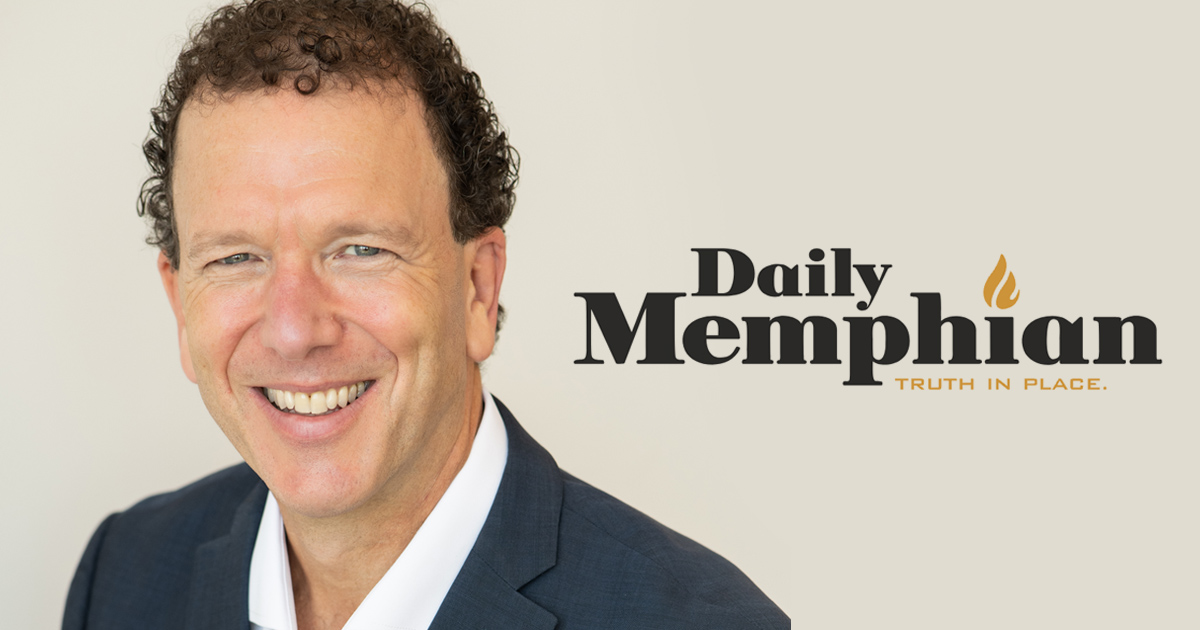Greenstein: Xenophobic slander has become normalized
By: Rabbi Micah Greenstein | August 25, 2024
Enter a search request and press enter. Press Esc or the X to close.

By Rabbi Micah Greenstein | Special to The Daily Memphian
Did you watch the Olympics? In some households, nothing else was on television for those weeks. Others of us liked to check in with the sports we like or the athletes who have been in the news, or maybe we enjoyed seeing if the underdog was going to come from sixth place and get a place on the platform.
No matter how much of it you watched, there’s something about admiring the hard work of people from around the world to qualify and compete for the most-prized event.
So why would we be suspicious of some of those same people if they crossed our border?
Fear of foreigners is nothing new in America. The first restrictions on immigration applied not to the numbers of people but to types of people.
In 1875, Congress prohibited the immigration of convicts and prostitutes. In 1882, a tidal wave of racism prompted Congress to adopt the Chinese Exclusion Act. From 1885 to 1907, the list expanded to exclude, among others, epileptics, paupers, anarchists and lunatics.
In 1924, Congress introduced the first legislation to limit immigration based on numbers, and 100 years later, the politicization of the issue led to the collapse of bipartisan immigration reform.
Sadly, xenophobic slander of immigrants has been normalized.
Immigration and refugee policy are unquestionably complex and controversial. The solutions are not easy. They require nuanced, multi-layered decisions. What matters most, however, is not just what we do as a nation of immigrants, but how we do it.
More than a few of us have lived through enough nightmares of cruel and heartless treatment of strangers, even condemning to death millions of innocent human beings in lands of tyranny and savage brutality. The farther away they are, though, the less we have to think about it.
The major villains in our current social tragedy, in my view, are not the illegal aliens who are roofers, painters, drywall installers and health care and information-technology workers. The major culprit is an antiquated system that does not serve present circumstances and is hostage to politics and plain, ordinary bigotry.
“The earth is the Lord’s and all its fullness, the world and everyone who lives here,” says the psalmist.
It is hard to ignore numerous scriptural passages exhorting care for immigrants and refugees, including the prophet Isaiah who reminds the people God condemns those who “turn aside from justice and robs the most vulnerable members of society of their basic rights” (10:2).
The same sentiment is expressed in Jeremiah (7:5–7), Ezekiel (47:22), Zechariah (7:9–10) and other Torah verses.
These are the Jewish versions of the Christian scripture’s Matthew 25, wherein Jesus warns his followers those who withhold care from the poor or refugee — “the least of these” — are viewed as having withheld care from Jesus himself.
I will forever remember my dear friend, the late Idlewild Presbyterian Church senior pastor Steve Montgomery, who preached a powerful sermon on this subject quoting Galatians 3:28.
Montgomery expressed eloquently how his Christian faith is supposed to transcend barriers of race, class, wealth and nationality, leading him to quote the New Testament: “There is neither Jew nor Greek, there is neither slave nor free, there is neither male nor female: for ye are all one in Christ Jesus.”
In the five books of Moses alone, one commandment is repeated more than any other. The command is not about loving your neighbor or your parents, even though I hope we all do. No. The Bible repeats 35 times, “treat the stranger among you like the native citizen … love the resident alien as yourself because you were once strangers in the land of Egypt.”
The big idea derived from the Hebrew Scriptures or Old Testament is a commanding concern for the stranger within our borders — the lost, the least, the last — including the most vulnerable undocumented immigrants in this country.
I know this is a complex issue and do not mean to suggest otherwise. No matter what our religious tradition, though, faith is proved in the doing, not the attacking; in deeds of loving kindness, not in diatribes or stereotypes.
For every human being has been touched with a spark of divine goodness. We each possess a portion of God’s greatness in equal measure no matter what our color, creed or country.
For sure, the Olympics earlier this month had me standing on my feet rooting for the U.S. At the same time, I could enlarge my narrow vision and appreciate what it must have meant to the gold medalists from St. Lucia and Ukraine to hear their national anthems played in such a time as this.
There is not enough room for all Memphians to live in the same house, which is why we need rows of houses called a neighborhood.
Certainly, there is not enough room in one country to house the 8.2 billion human beings living on this planet. However, there are humane and inhumane ways to find solutions and address the most vulnerable members of society.
Leviticus 19 deserves the final word on this subject: “If a stranger sojourns in your land with you, you shall not do him any wrong. The stranger that sojourns with you shall be to you like the home-born among you, and you shall love him as yourself, for you were strangers in the land of Egypt: I am the Lord your God.”
This site uses cookies to offer you a better browsing experience. If you continue using our website, we'll assume that you are happy to receive all cookies on this website and you agree to our Privacy Policy.